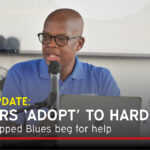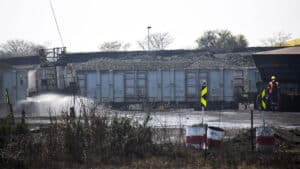While Africa has registered fewer confirmed cases of Covid-19 and the least number of deaths, the United Nations (UN) has warned that many lives could be at risk in the continent.
As of Wednesday morning, confirmed Coronavirus infections in Africa stood at 35, 043 making up just over a percent of the 3, 116, 992 worldwide total.
The global death toll currently stands at 217, 183, with roughly 1, 400 fatalities occurring on the African continent.
Despite these seemingly positive statistics, the UN fears that anywhere between 300, 000 and 3.3 million people could lose their lives in Africa – home to 1.2 billion people – as a direct result of Covid-19.
This frightening figure is dependent on the measures taken to stop the virus’ spread.
The UN notes that the continent is especially vulnerable because 56 percent of its urban population live in overcrowded and poorly serviced slum dwellings.
Furthermore, the organisation says only 34 percent of households have access to basic hand-washing facilities.
Additionally, Africa’s high numbers of both Tuberculosis and HIV/AIDS sufferers is a cause for concern as people inflicted with such conditions are at a greater risk of death should they contract Coronavirus.
The pandemic is also expected to have an adverse socio-economic impact on Africa, as 71 percent of the workforce is believed to be in formal employment, with the majority unable to work from home.
Focusing the microscope on Botswana, the country currently (29 April) has 23 confirmed cases, with five recoveries and one fatality.
Looking at the factors the UN believes could contribute to the thousands of deaths in Africa, a 2017 Demographic Survey conducted by Statistics Botswana estimated the country’s population to be 2.1 million.
Kweneng East, an area comprising of villages such as Molepolole, Gabane, Mmopane and Mogoditshane, was reported to be the most populated, accounting for 13 percent of the population. Gaborone came in second with 10.9 percent.
In terms of formal and informal employment, it has been found that 74.2 percent of the wage earners are in the formal sector (roughly 378, 994 people) while 25.8 percent are in the informal sector and located predominantly in rural areas.
Based on the 2015/16 Botswana Multi-Topic Household Survey (BMTHS), it was discovered that 16.3 percent of the population live below the poverty datum line, with the majority of those living in towns and cities.
In terms of HIV prevalence, it is estimated that about 370, 000 people are living with HIV in Botswana, with an adult prevalence of 20.3 percent for the 15-49 age group.
The country is said to have the fourth highest HIV prevalence rate in the world, after South Africa, Lesotho and eSwatini.
A recent study by Statistics Botswana also discovered that households living in shacks increased significantly from 1.21 percent in 1991 to 2.22 percent (out of 589, 909 households) in 2017. The development is described as a cause for concern as it puts households at a higher risk of contracting communicable diseases.

















